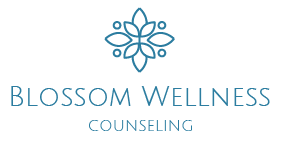Blog
Blog

Beyond Traditional Meditation: Unique Practices to Ease Anxiety
Meditation is widely recognized as a powerful tool for reducing anxiety, but for many, traditional meditation (sitting still in silence for extended periods) can feel intimidating, frustrating, or even counterproductive. If you've ever struggled with meditation, you're not alone. The good news is there are non-traditional approaches to meditation that can be just as effective in calming your mind and soothing anxiety.
In this blog post, I’ll share some alternative forms of meditation and mindfulness that engage your senses, movement, and imagination (practices that go beyond sitting in stillness and allow you to experience mindfulness in a way that feels natural and accessible).
The Science of Meditation and Anxiety
So, why is meditation so effective for anxiety? Studies have shown that mindfulness-based practices can significantly reduce symptoms of anxiety and depression. They found that mindfulness meditation programs can lead to moderate reductions in anxiety, stress, and even physical pain.
Meditation helps regulate the nervous system, shifting the body out of the fight-or-flight response and into a state of rest and relaxation. However, traditional seated meditation isn't the only way to achieve these benefits. Engaging in sensory-focused, movement-based, or guided practices can be just as powerful.
So, if you've ever felt that traditional meditation isn’t for you, don't worry, you have options!
Guided Meditation: Letting Someone Else Lead the Way
In guided meditation, a narrator (often via an app, podcast, or video) walks you through a relaxation exercise, visualization, or body scan. This approach can be especially helpful for individuals with anxiety, as it provides structure and direction rather than leaving you alone with racing thoughts.
How it helps anxiety:
Engages your attention so you don’t get lost in anxious thoughts
Provides a sense of comfort and reassurance
Encourages deep breathing and relaxation
How to try it:
Apps like Calm, Insight Timer, and Headspace offer a variety of guided meditations.
YouTube has free guided meditation videos for different moods and needs.
Try bedtime meditations to ease anxiety before sleep.
Movement Meditation: Turning Anxiety into Flow
Many people find it difficult to sit still, especially when feeling anxious. Movement meditation incorporates gentle physical activity with mindfulness, allowing you to release nervous energy while staying present. Practices such as yoga, tai chi, or even slow walking can serve as movement-based meditation.
How it helps anxiety:
Engages the body, preventing restlessness
Encourages deep breathing and rhythmic movement
Helps release stored tension and stress
How to try it:
Take a mindful walk, focusing on each step and breath.
Try a slow-flow yoga practice with intentional breathing.
Experiment with qigong or tai chi for a meditative movement experience.
Mindfulness Through the Senses
Sometimes, anxiety can make us feel disconnected from our surroundings. A powerful alternative to traditional meditation is mindfulness that actively engages your senses: sight, sound, touch, taste, and smell. This form of mindfulness helps ground you in the present moment and distracts from anxious thoughts.
How it helps anxiety:
Shifts focus away from worry and into the present moment
Creates a calming sensory experience
Helps build resilience against overthinking
How to try it:
Listen to soothing music and focus on each instrument.
Hold a warm cup of tea and focus on its texture, scent, and warmth.
Practice the 5-4-3-2-1 technique: Name five things you see, four things you touch, three things you hear, two things you smell, and one thing you taste.
Journaling as a Meditative Practice
Meditation isn’t just about quieting the mind. It’s also about processing thoughts in a healthy way. Journaling is a powerful tool for self-reflection and emotional release. Writing can serve as a form of meditation by allowing you to express your worries and gain clarity on what’s really bothering you.
How it helps anxiety:
Provides an outlet for pent-up thoughts and emotions
Helps identify and challenge negative thought patterns
Encourages mindfulness by focusing on the present moment
How to try it:
Try stream-of-consciousness journaling. Write whatever comes to mind without judgment.
Keep a gratitude journal and list three things you're grateful for each day.
Use journal prompts like: “What’s one worry I can let go of today?”
Creative Meditation: Art, Music, and Expression
Who says meditation has to be silent? Creative activities such as painting, drawing, playing an instrument, or even knitting can serve as a meditative practice. When you lose yourself in a creative act, your brain enters a state similar to meditation where thoughts slow down and you become fully immersed in the moment.
How it helps anxiety:
Encourages a flow state and reduces overthinking
Provides an outlet for self-expression and emotional release
Engages the brain in a way that promotes relaxation
How to try it:
Doodle or color in an adult coloring book while focusing on the movement of your hands.
Play an instrument and pay attention to each note and rhythm.
Try sculpting or pottery as a hands-on, grounding activity.
The beauty of meditation is that it isn’t one-size-fits-all. If traditional methods haven’t worked for you, there are countless ways to incorporate mindfulness into your life in a way that feels natural.
Experiment with different techniques and don’t be afraid to mix and match. You may find that what works best for your anxiety is a combination of approaches.
Meditation isn’t about perfection; it’s about presence. However you choose to practice, the goal is simply to return to the moment and create a space for peace in your mind and body.
Get the support you need to create calm confidence that lasts
Get the support you need to create calm confidence that lasts
Copyright@2023 Blossom Wellness Spa, Inc.
Copyright@2023 Blossom Wellness Spa, Inc.



